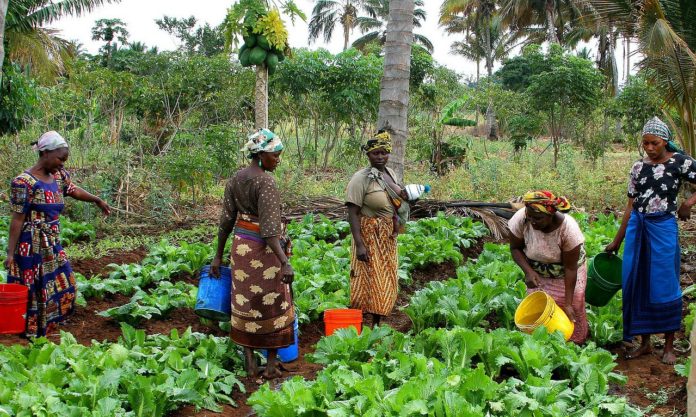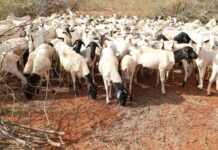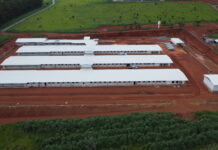The Food and Agriculture Organization of the United Nations (FAO) Subregional Office for Eastern Africa (SFE) and the Japanese Government Mission to the African Union officially launched a subregional project, aiming at fostering employment among women and youth in agriculture and agribusiness in six Eastern Africa countries.
The project, Promoting Employment and Entrepreneurship Opportunities among Women and Youth in Agriculture and Agribusiness in Eastern Africa, is being implemented in Burundi, Ethiopia, Kenya, Rwanda, South Sudan and Uganda. It is set to facilitate and ensure enhanced knowledge and application of digital solutions in agri-food systems with a particular focus on women and youth. It is also strengthening human and institutional capacities, while providing agripreneurs with the opportunities to access finance for agri-food systems development.
During the virtual launch event, David Phiri, FAO Subregional Coordinator for Eastern Africa and Representative to the AU and United Nations Economic Commission for Africa (UNECA), recalled that the Eastern Africa subregion was home to 50 percent of the highly food insecure population of the whole of Africa and, hence, aiding this subregion meant supporting the whole of Africa.
Multiple shocks
He further noted that the subregion was experiencing stress due to multiple shocks, such as desert locust infestation, climate-induced shocks, conflicts and political instability, and socio-economic strains. The COVID-19 pandemic posed additional risks, which significantly compromised the livelihoods of millions of people, particularly the youth and women. To alleviate this challenge, FAO, in collaboration with development partners, was engaged in several interventions, supporting decent employment, agripreneurship and resilience building for youth and women in the agriculture sector.
“This project, which supports nations to explore new ways to tap into their youthful, energetic, innovative and industrious resources by creating opportunities for jobs, where agriculture is the most viable sector, is one of the timeliest engagements of FAO and the Government of Japan,” Phiri commented.
His Excellency HORIUCHI Toshihiko, Ambassador of Japan to the African Union, asserted that the Japanese Government was glad to work with FAO in addressing food security challenges in Eastern Africa, where the livelihoods of millions people are highly dependent on agriculture.
“Agriculture and food security are a fundamental basis of all the socio-economic activities, and hence they will be the priority agenda of TICAD8 – the 8th Tokyo International Conference on African Development – to be held this year,” Ambassador Horiuchi highlighted.
Recalling the declaration of the AU Heads of State and Government that marked 2022 as year of nutrition, with the theme, “Building Resilience in Nutrition and Food Security on the African Continent: Accelerate the Human Capital, Social and Economic Development,” H.E. Horiuchi underscored the significance of the project as a catalyst to foster ongoing efforts to improve the agri-food systems through agricultural transformation.
“This project is very relevant to the subregion in the sense that it focuses on women and youth, realising that women make up half of the population and provide over 40 percent of the labour force in crop and livestock production. The subregion is also a place, where a significant percentage of the population is young, which is a great potential for agri-food system transformation,” Ambassador Horiuchi explained.
Presenting their initial experiences in the implementation of the project, experts from South Sudan and Uganda reiterated the positive outcomes gained so far among young smallholder farmers, cooperatives and women groups in accessing new technologies, digital platforms, technical skills, and finance and markets to improve their businesses. The Representative of the African Youth Agribusiness Platform (AYAP), an initiative supported by FAO and the Eastern African Farmers Federation (EAFF), also presented AYAP’s experience in implementing the project at national and regional levels, noting that the platform had been instrumental in sharing experience, learning and mentorship.








